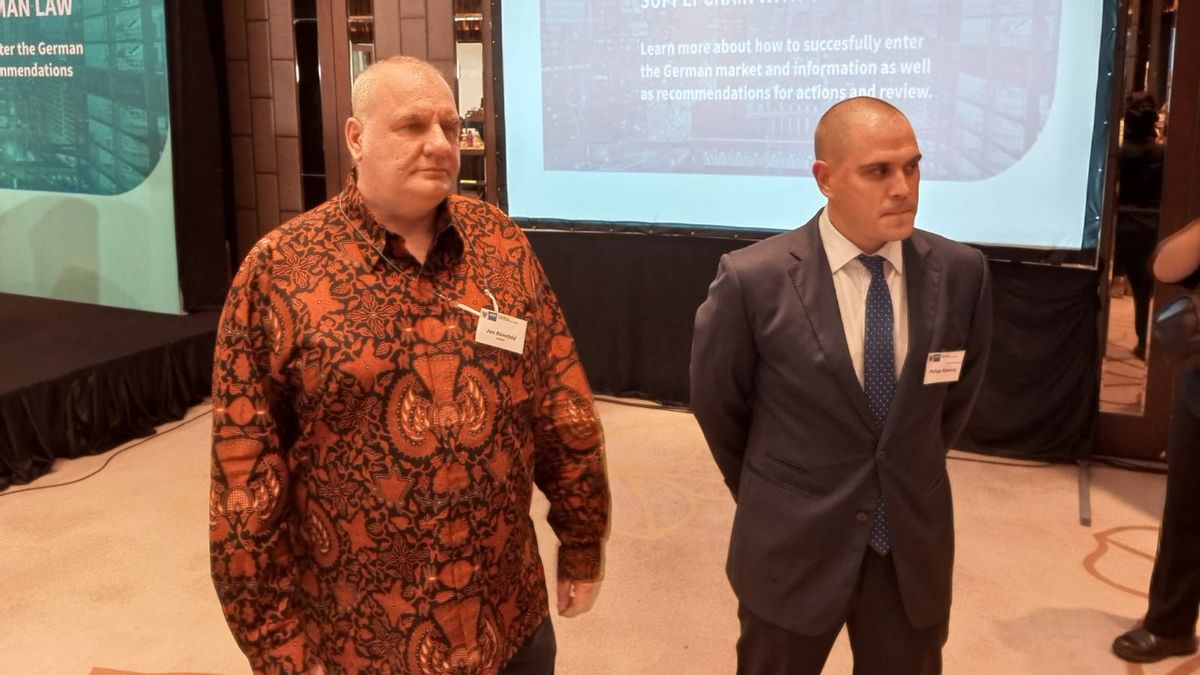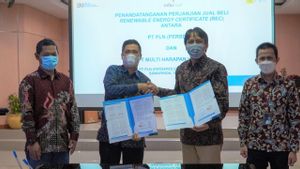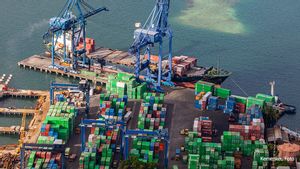JAKARTA - The Indonesian-German Economic Association (EKONID) cooperates with the Law Office of Luther LLP in disseminating the latest German regulations regarding supply chains. This follows the issuance of the Supply Chain Act (UU) on Due Diligence on the Supply Chain.
EKONID Managing Director Jan Roennfeld said the purpose of this socialization was so that Indonesian companies and micro, small, and medium enterprises (MSMEs) that have or will penetrate the German market can prepare themselves to adapt their business strategies and operations to the new German Supply Chain Due Diligence Act.
"It is hoped that this will encourage the business world in Indonesia to have more added value and increase competitiveness compared to businesses from other countries," he said at a workshop held by EKONID in Jakarta, Wednesday, May 25.
The law will be enforced on January 1, 2023, for companies domiciled in Jarman. However, the enactment of this law will have implications for business in Indonesia, especially for German companies that have subsidiaries and affiliated businesses in Indonesia, as well as their direct and indirect suppliers.
Indonesian business actors who become direct or indirect suppliers are business actors who sell goods or provide services to companies in Germany.
Meanwhile, Registered Foreign Advocate (Indonesia), Partner and Location Head of Luther LLP Law Office, Philipp Kersting explained that although due diligence on this supply chain is the obligation of German companies and their subsidiaries, Indonesian business actors are expected to be able to prepare themselves to adjust their operational activities.
"To stay aware of the latest international standards regarding supply chain due diligence, and share responsibility in preventing human rights violations and negative environmental impacts in the supply chain," said Philipp.
SEE ALSO:
Philipp also said that the European Union would also soon issue a provision on Supply Chain Due Diligence, so that understanding the Law on Supply Chain Due Diligence could help businesses understand this new provision not only to enter the German market but also the European Union in general.
"The purpose of this German Supply Chain Act is to mitigate risks to human rights abuses and environmental impacts in global supply chains. So it is hoped that businesses involved in supply chains to the German market can have a responsibility to ensure that these risks was properly mitigated and did not instead turn into a violation," he explained.
The English, Chinese, Japanese, Arabic, and French versions are automatically generated by the AI. So there may still be inaccuracies in translating, please always see Indonesian as our main language. (system supported by DigitalSiber.id)


















